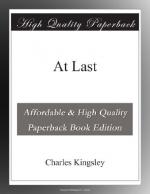Rosa “had out” her fit of crying when he went away, betaking herself to her chamber and locking the door that her aunt might not surprise her while the traces of tears disfigured her cheeks. But she was anything but broken-hearted, and only slightly sore in spirit in the retrospect of what had ensued upon her communication to the discarded lover. He had, indeed, given more evidence of his unconquered passion for Mabel than she had expected. His undisguised pleasure in renewed companionship with herself; his excellent spirits during the greater part of the evening; his unembarrassed reply to her aunt’s malapropos observation, and fluent chat upon other themes, had misled her into the hope that the ungenerous and uncivil conduct of the Ayletts had disgusted and alienated him from sister, no less than from brother. It was a disappointment to discover that it cost him a terrible effort to pronounce Mabel’s name, while the abrupt intelligence of her marriage had distracted him to incoherent ravings, which had nearly amounted to curses upon the authors of his pain.
“And all for a woman who could bring herself, after being engaged to Frederic Chilton, to marry that dolt of a Dorrance!” she said, indignantly. “I wonder if he would have been consoled or chagrined had I painted the portrait of the man who had superseded him. It is as well that I did not make the experiment. He would be magnanimous enough when he cooled down—which he will do by to-morrow morning—to pity her, and that is next to the last thing I want him to do. Thank goodness! the denouement is over, and the topic an interdicted one from this time forth. Now for the verification or refutation of the saying that a heart is most easily caught in the rebound. There was some jargon we learned at school about the angle of incidence being equal to that of reflection. You see, my dearly beloved self,” nodding with returning sauciness at her image in the mirror before which she was combing her hair, “I undertake this business in the spirit of philosophical investigation.”
She needed to keep her courage up by these and the like whimsical conceits, when the forenoon of the next day passed away without a glimpse of Mr. Chilton. He had not yet left his card for the Masons, nor called to inquire after her health, when the summons sounded to the five o’clock dinner. A horrible apprehension seized and devoured her heart by the time the dessert was brought on, and there were no signs of his appearance. He had, ashamed to meet her after last night’s exposure of his weakness, or dreading the power of the reminiscences the sight of her would awaken, left the city without coming to say “Farewell.” That is, she had driven him from her forever!
The room went around with her in a dizzy waltz, as the notion crossed her brain.
“The sight and smell of all these sweets make me sick, Aunt Mary,” she said, rising from the table. “My head aches awfully! May I go to my room and lie down?”




